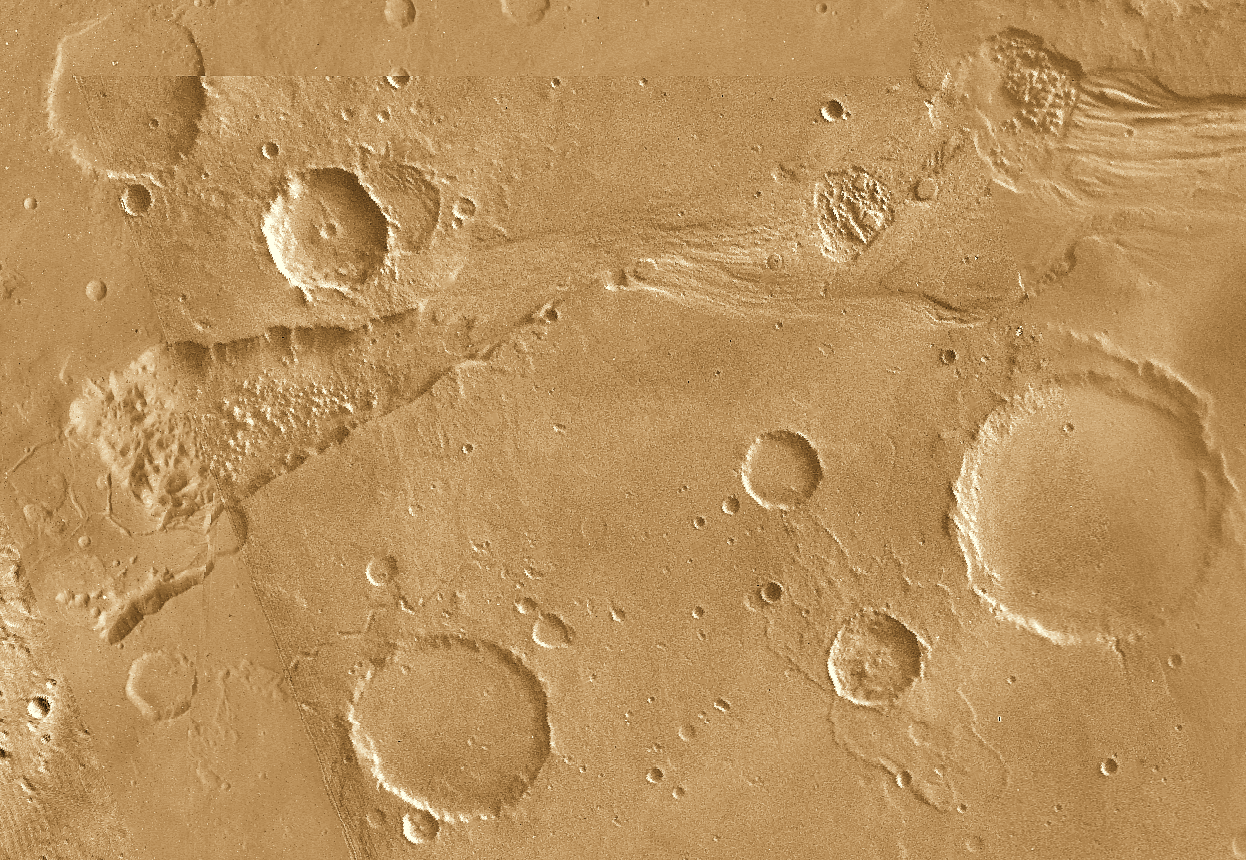Outflow Source of Channel Ravi Vallis
![]()
| Home Michael Ammar Solar System Solar System Summary Sun Sun's Statistics Mercury Mercury's Statistics Venus Venus' Statistics Earth Earth's Statistics Mars Mars' Statistics Asteroid Field Asteroid Field's Statistics Jupiter Jupiter's Statistics Saturn Saturn's Statistics Uranus Uranus' Statistics Neptun Neptun's Statistics Pluto Pluto's Statistics Picture Library |
 |
| Outflow Source of Channel
Ravi Vallis This image of the head of Ravi Vallis shows a 300-kilometer (186-mile) long portion of a channel. Like many other channels that empty into the northern plains of Mars, Ravi Vallis orginates in a region of collapsed and disrupted ("chaotic") terrain within the planet's older, cratered highlands. Structures in these channels indicate that they were carved by liquid water moving at high flow rates. The abrupt beginning of the channel, with no apparent tributaries, suggests that the water was released under great pressure from beneath a confining layer of frozen ground. As this water was released and flowed away, the overlying surface collapsed, producing the disruption and subsidence shown here. Three such regions of chaotic collapsed material are seen in this image, connected by a channel whose floor was scoured by the flowing water. The flow in this channel was from west to east (left to right). This channel ultimately links up with a system of channels that flowed northward into Chryse Basin. (Copyright Calvin J. Hamilton; Caption: LPI) |
Send mail to [email protected] with questions or comments
about this web site.
Copyright � 1998 Michael Ammar.